You are here: Foswiki>Dmi Web>WinterSchool2023 (11 Aug 2023, HennaPaakki)Edit Attach
What actually happened? The use and misuse of Open Source Intelligence (OSINT)
Digital Methods Winter School and Data Sprint 2023
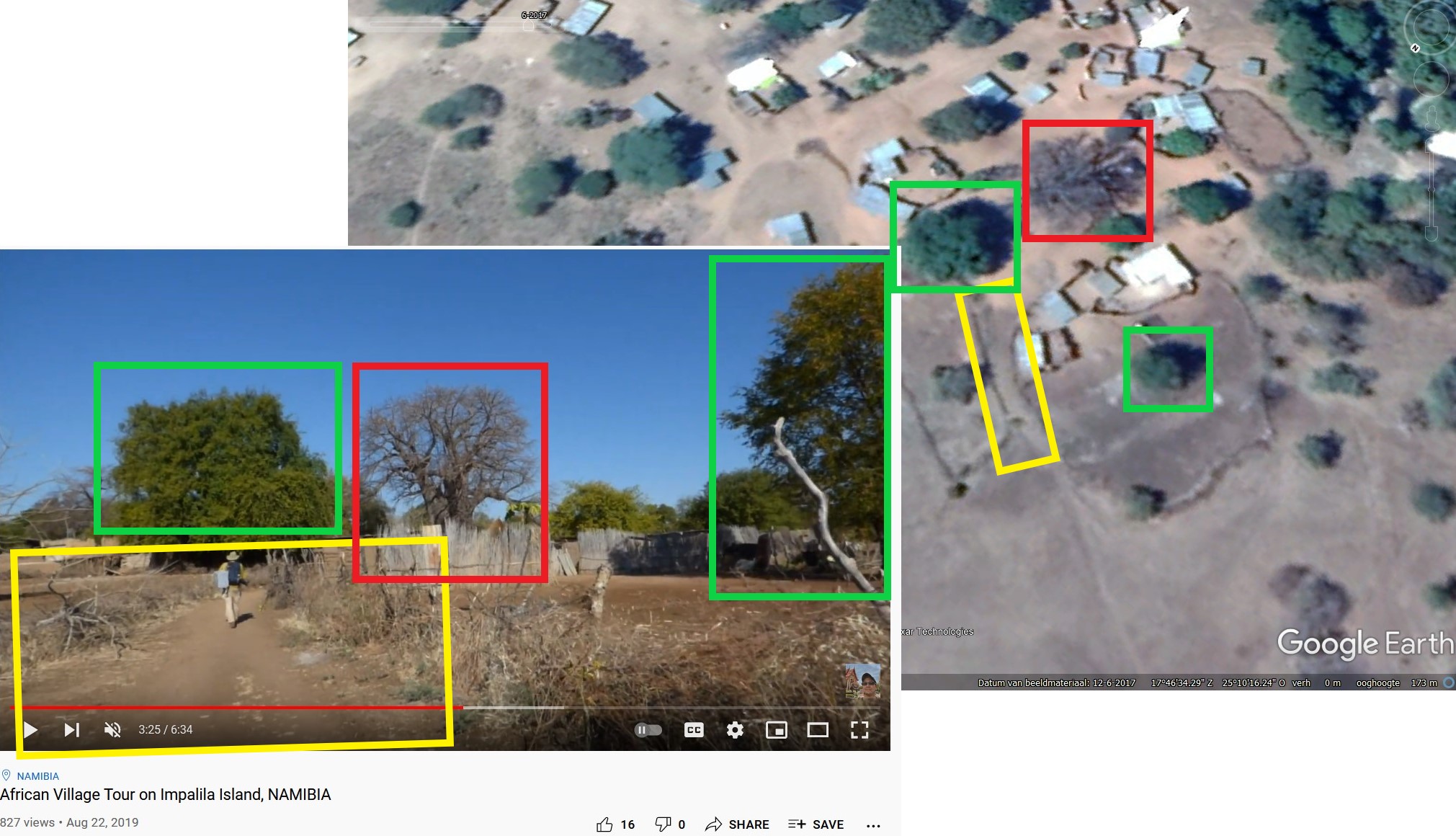
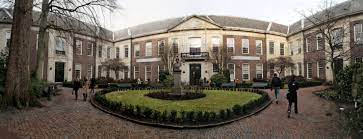
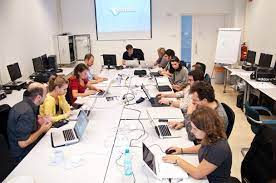
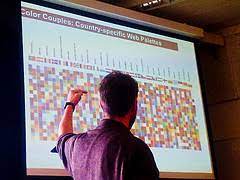
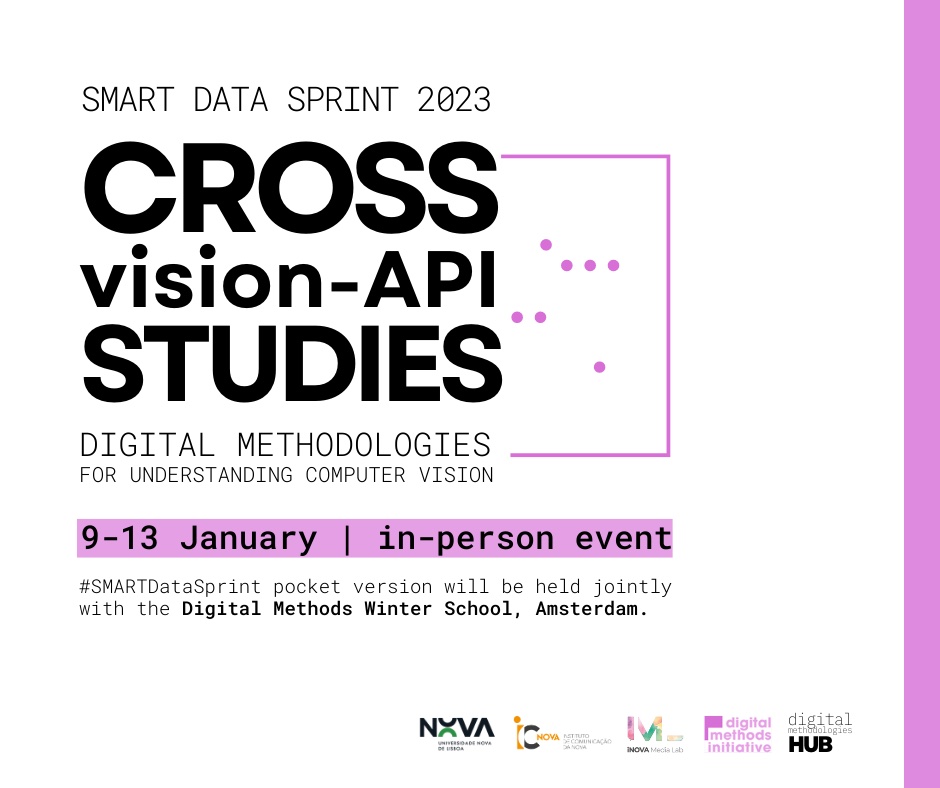
Digital Methods Winter School and Data Sprint 2023 9-13 January 2023
https://wiki.digitalmethods.net/Dmi/WinterSchool2023
In-person event Opening Time:
9 January at 9.15am Amsterdam time. Please be punctual!
Opening Day Location:
University of Amsterdam
Roeterseilandcampus (REC)
Building C Room C0.02
Nieuwe Achtergracht166
1018 WV Amsterdam When the lecture hall is full, please use the common areas on the ground floor and first floor. Tune in to the zoom link and use your headphones.
Everyday Winter School location:
Media Studies
University of Amsterdam
Turfdraagsterpad 9
1012 XT Amsterdam
Project write-ups (how-to) and links to posters and videos
Please make a project page wiki, and add your project write-up and links to your poster and video to it. Here is an example of a project report, https://wiki.digitalmethods.net/Dmi/WinterSchool2019Normiefication. You can place multiple sub-projects into one wiki report, or you can create a set of subprojects by placing them under main project title. Here is the wiki project report template. Practically speaking, to create a project page, make a wiki page such as https://wiki.digitalmethods.net/Dmi/WinterSchool2023TikTokMisinfo by typing such a URL (please note the URL syntax - /Dmi/WinterSchool2023 followed by shortened project name). Then 'create' the page (called a 'topic'). When you try to edit a page, you'll be asked to log in, at which point you can create an account. Account creation is enabled. Attach your video and poster to your project page using the 'attach' feature at the bottom of the page. On this page, please link your project write-up by title below (by editing this page). If you are unable to create a wiki page or account, please send your final report (using the template) to the organizers. ---++ Project write-ups and links to poster and videosposter
video
final report
2. Coming of age on Instagram
poster
video
final report
3. Mapping OSINT Landscapes
subproject: Mapping OSINT Images
posters: Mapping OSINT Issues, Community dynamic, Mapping Methods, Visual Themes.
video: Mapping OSINT Issues
4. Mapping Post-truth spaces concerning the war in Ukraine
posters: Attention to war in Ukraine on Facebook; Chinese Douyin sentiment to the war in Ukraine; Mapping post-truth spaces
videos: Attention to the war in Ukraine on Facebook
5. Mapping Coordinated Networks That Circulate Problematic Information on the war in Ukraine
Posters: Poster 1.pdf Poster 2.pdf
video Component 5 : The Informational Ecosystem of French Anti-Establishment Facebook Groups Component 10: Anti-NATO sentiments in Latin American far-left and USA based far-right groups before and after Ukraine invasion 6. Modeling and Tracking the Spread of Disinformation Poster: Modeling and Tracking the Spread of Disinformation Part 1
Video: Modeling and Tracking the Spread of Disinformation Poster Presentation Part 1
7. Analyzing the content of Youtube’s recommendation system
Poster 1 Poster 2 Video
8. How real is the Illuminati? Investigating Open Source Conspiracism in the age of Black Lives Matter and Vigilant Citizen(s) final report: FINAL REPORT 6.2.23.pdf posters: Tropes and narratives in Beyoncé-Illuminati theories videos: Tropes and narratives in Beyoncé-Illuminati theories
9. Mapping the ‘memory loss’ of disinformation in fact checks: Current fact-check archiving practices and Facebook post removal
poster
video
10. Tiktok Thermometer
poster
video
11. The World According to Tiktok: Mapping Digital Boundaries and Algorithmic Proximities
poster
video
12. Cross Vision-API Studies. Digital methodologies for understanding computer vision
poster
video
13. Z Spaces: Tiktok Tactics and Cross-Platform Circulation of Russian War Propaganda
poster
Video Part 1 Soundscapes Analyses
Video Part 2 Cross-platform Analyses
14. The Disinformation Laundromat
poster
video
15. How Youtube Mediates Current Events
16. Networked Media Literacy and the spread of problematic information
poster
video
17. 🔬💥🤗 Tracing trust in a truth-less world. Comparing three scientific controversies on TikTok and Twitter
poster
video
18. Cult Leaders, Masculinity, and White Supremacy on Youtube: The Case of Stefan Molyneux
Cult_Leaders_1_DMI_WinterSchool.pdf, Cult_leaders_2_DMI_WinterSchool-2.pdf, video
19. 🇧🇷 Brasilia's January 8 riots and a botched coup d'État: how Brazilian history repeated itself on social media [draft]
poster
video
Welcome Package
Welcome package.Schedule.
Project descriptions.
Tutorials and Tutorials schedule.
Template for project reports. And Wiki template.
Official hashtag: #dmi23.
Slack channel: https://dmiws23.slack.com. Link to join: https://tiny.one/dmi23-ws-join-channel
Template for final poster.
Face Book.
Collaborative note-taking for Keynotes.
Digital Methods Winter School and Data Sprint: Call for Participation
The Digital Methods Initiative (DMI), Amsterdam, is holding its annual Winter School on the 'Use and Misuse of Open Source Intelligence (OSINT)'. The format is that of a (social media and web) data sprint, with tutorials as well as hands-on work for telling stories with data. There is also a programme of keynote speakers. It is intended for advanced Master's students, PhD candidates and motivated scholars who would like to work on (and complete) a digital methods project in an intensive workshop setting. For a preview of what the event is like, you can view short video clips from previous editions of the School.
What actually happened? The use and misuse of Open Source Intelligence (OSINT)
From geolocating burning tanks in the Ukrainian fields and determining the authenticity of videos depicting possible human rights violations in Cameroon to reconstructing the events of January 6, 2021 in the Capitol building in Washington, D.C., activists, journalists, and the general public are increasingly turning to a (somewhat) new ally: Open Source Intelligence (OSINT). The systematization of information gathered from open, often internet-based, sources (as opposed to the classified sources of governmental intelligence) using digital tools, as OSINT may be defined, is turning into a highly regarded strategy to build public narratives of truth.
Recently, major news outlets such as The Guardian, The New York Times, and the BBC have added OSINT units called ‘visual investigation’ teams. They join more established investigation units from international civil society such as those of Amnesty International and Human Rights Watch, academic research institutions such as Berkley's Human Rights Investigations Lab, and citizen intelligence agencies like Bellingcat. Recent news articles have described the rise of open source intelligence as challenging existing authorities, especially state-controlled or other official information sources. In doing so, OSINT practitioners have developed a particular set of reporting formats and verification tools that strengthen the epistemic authority of their practices. For example, crowd-sourced information from Twitter or Telegram is arranged next to video stills pulled from popular platforms or satellite images from public providers in order to put together and strengthen the argument of what actually happened. OSINT has developed a signature 'investigative aesthetic' and style, dramatised and popularised by organisations striving for justice, such as Forensic Architecture, or preserving the memory of wars, such as the Syrian Archive. OSINT also taps into the transparency strategies of the open source ethos and the encouragement of DIY hacker culture. Professional and lay OSINT practitioners curate lists of tools, draft how-to guides and share training materials on YouTube and elsewhere to empower others to undertake similar work. These have been applied to projects that fight climate change and trace illicit money flowing through obscure corporate structures. They also have found an eager audience in those who dig for and post updates about conspiracy theories such as QAnon. Whether it is misuse or weaponisation, OSINT practices and styles have also been adopted by misinformation operatives such as 'War on Fakes'. The Winter School takes up OSINT as an investigative practice and aesthetic. It offers critical research projects on data journalism, fact-checking and other investigative projects employing online data. It also combines OSINT tools with digital methods and other online research techniques for academic research that make use of verification. Finally, it analyses its cultures of practice and how it establishes and undermines others' epistemic authority. Organisers: Kamila Koronska, Richard Rogers and Guillen Torres, Media Studies, University of Amsterdam. Application information at https://www.digitalmethods.net.Applications: Key Dates
There are rolling admissions and applications are accepted until 1 December 2022. To apply please send a letter of motivation, your CV, a headshot photo, 100-word bio as well as a copy of your passport (details page only) to winterschool [at] digitalmethods.net. Notifications of acceptance are sent approximately one week after application. Final notifications on 5 December. The full program and schedule of the Winter School are available by 19 December 2022. ---++ Tuition Fees, Accommodations & Completion Certificates The fee for the Digital Methods Winter School 2023 is EUR 695, and upon completion all participants receive certificates (and 6 ECTS). To complete the Winter School successfully all participants must co-present the final poster presentation and co-author the final project report, evidenced by the poster as well as the final report itself. Final reports should appear on this wiki (handy template) and contain a link to the final presentation slides. They are due three weeks after the end of the Winter School (3 February 2023).Payment information is sent along with the acceptance notification. Students at the University of Amsterdam and vera.ai EU project participants do not pay fees. Members of Dutch Research Schools and UvA alumni pay half fees. The Winter School is self-catered. The venue is in the center of Amsterdam with abundant coffee houses and lunch places. Participants are expected to find their own housing (short-stay sites are helpful), or we have available accommodations at the Student Hotel (Social Hub) as well as the Volkshotel: The Social Hub Amsterdam (Amsterdam West)
Jan van Galenstraat 335
1061 AZ Amsterdam, The Netherlands
Tel: +31 20 760 4000
(Arrival: 7 or 8 January 2022; Departure: 14 January 2023)
https://www.thestudenthotel.com/amsterdam-west
reservations [at] thesocialhub.co or tel. +31 20 760 7575. Here is the promo code (with instructions) for online booking. The Volkshotel
Wibautstraat 150
1091 GR Amsterdam
+31 20 261 2100
https://www.volkshotel.nl/ For the Volkshotel, you book directly with us when you register for the Winter School. Registration information is sent to you once you have been accepted. For rooms at the Volkshotel, first come, first served.
For further questions, please contact the local organizers, at winterschool [at] digitalmethods.net. Please bring your laptop computer, your European plug as well as the HDMI adaptor for connecting to the projector.
About DMI
The Digital Methods Winter School is part of the Digital Methods Initiative (DMI), Amsterdam, dedicated to developing techniques for Internet-related research and to the study of the natively digital. The Digital Methods Initiative holds the annual Digital Methods Summer Schools (sixteen to date), which are intensive and full-time undertakings in the Summertime. There is a practical textbook, Doing Digital Methods (Sage, 2019). The Digital Methods book (MIT Press, 2015) provides the methodological outlook that frames and informs the work of the DMI. It is accompanied by a companion volume about mapping social and political issues with digital methods: Issue Mapping for an Ageing Europe (Amsterdam University Press, 2015), which is also freely available on the web as an open access monograph. Further information and resources about digital methods can be found at digitalmethods.net - including links to example projects, publications, tools, an introductory "founding narrative" about the Digital Methods Initiative as well as short bios of the affiliated researchers. The coordinators of the Digital Methods Initiative are Dr. Sabine Niederer (Amsterdam University of Applied Sciences) and Dr. Esther Weltevrede (New Media & Digital Culture, University of Amsterdam), and the director is Richard Rogers, Professor of New Media & Digital Culture, University of Amsterdam.
About Digital Methods as a Concept
Digital methods is a term coined as a counterpoint to virtual methods, which typically digitize existing methods and port them onto the Web. Digital methods, contrariwise, seek to learn from the methods built into the dominant devices online, and repurpose them for social and cultural research. That is, the challenge is to study both the info-web as well as the social web with the tools that organize them. There is a general protocol to digital methods. At the outset stock is taken of the natively digital objects that are available (links, tags, threads, etc.) and how devices such as search engines make use of them. Can the device techniques be repurposed, for example by remixing the digital objects they take as inputs? Once findings are made with online data, where to ground them? Is the baseline still the offline, or are findings to be grounded in more online data? See R. Rogers (2009), The End of the Virtual: Digital Methods. Amsterdam: Amsterdam University Press.
Social
We are using the #DMI23 hashtag as the backchannel for communication (to use a throwback term for Twitter usage). Some pictures from a past Winter School. Here is the Facebook Group from one year, and from a recent Summer School. Here are pictures from a variety of DMI Summer and Winter School Flickr streams. ---++ EU Project The Winter School School is part of the EU Project, vera.ai and certain projects SoBigData++ and CLEOPATRA.
* My Movie 1.mp4: Modeling and Tracking Disinformation Spread Video 2 * video-C.mp4: video-group-c-coming-of-age-instagram * COMING OF AGE ON INSTAGRAM_POSTER B.mp4: Coming of Age Instagram - Group B * COMING OF AGE ON INSTAGRAM_POSTER B.mp4: Coming of Age Instagram - Group B * Movie001.mp4: Coming of age on Instagram Group A * Movie001.mp4: Coming of age on Instagram Group A * Movie001.mp4: Coming of age on Instagram Group A * Disinformation Spread Part 1.mov: Disinformation Spread Part 1.mov * Disinformation Spread Part 1.mov: Disinformation Spread Part 1.mov
Edit | Attach | Print version | History: r72 < r71 < r70 < r69 | Backlinks | View wiki text | Edit wiki text | More topic actions
Topic revision: r72 - 11 Aug 2023, HennaPaakki
 Copyright © by the contributing authors. All material on this collaboration platform is the property of the contributing authors.
Copyright © by the contributing authors. All material on this collaboration platform is the property of the contributing authors. Ideas, requests, problems regarding Foswiki? Send feedback


